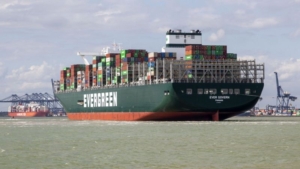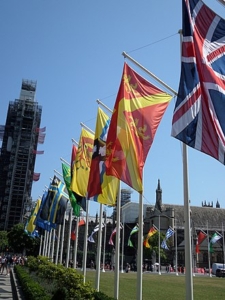
With 39 days until the UK leaves the single market, the country risks losing access to European finance markets – and the loss of jobs and revenue that the finance sector supports.
Background
To reduce risk to business and citizens, any financial services firm that operates internationally must be regulated and comply with standards and requirements for each country in which it operates.
This was a time-consuming and expensive process. The EU simplified matters by introducing ‘passporting’ through a series of ‘single market directives’ – each addressing a specific area of operations. Today, an EU-based firm authorised in one Member State, is able to operate in another without having to seek additional authorisation.
All UK-based and regulated finance firms lose all their passporting rights when the UK leaves the European ‘single market’ on 31 December 2020. Without an agreement in place to mitigate arrangements this creates issues for:
- ‘UK’ authorised firms that currently passport their authorisations into Europe. According to the Financial Times, there are an estimated 5,500 such businesses;
- ‘EU’ and ‘EEA’ authorised firms that currently passport their authorisations and do business in the UK.
At the instant that passporting rights are lost, firms must either: cease operating in the countries they presently passport into; or, apply for and be granted authorisation rights to continue operations by the regulators for each country that they presently passport into.
The Political Declaration – part of the UK-EU ‘Withdrawal Treaty’ – aimed to conclude ‘equivalence’ assessments before the end of June 2020. That deadline was missed with each side blaming the other.
‘Equivalence’ is a system that can be used to grant ‘domestic market access’ to ‘foreign’ firms in certain areas of financial services. It is based on the principle that the countries where the firm is based has regimes which are ‘equivalent’ in control, behaviour and outcomes.
‘Equivalence’ carries nowhere near the same rights as ‘passporting’. However, it is the only option open to countries that are outside the ‘single market’ – which will be the UK position, ‘deal or no-deal’ from 1 January 2021.
On 9 November 2020, the UK took a unilateral decision to grant ‘equivalence’ to all EU and EEA regulated firms. The Chancellor announced to Parliament “a set of equivalence decisions for the EU and European Economic Area member states.”
The UK’s 22 point ‘equivalence determinations’ allow UK-based banks to use EU financial benchmarks, clearing houses, credit-rating agencies and operational support networks, and it exempts them from finding and holding additional capital required to protect against future losses linked to EU exposures.
The EU cannot grant equivalence to UK finance firms without the unanimous agreement of each of the 27 member states and, with no consensus reached and 6 weeks remaining until the UK leaves the single market– is now unlikely to do so by 31 December.
Bigger firms – and those already operating internationally – have been establishing and registering offices in Europe, according to the CBI. However, they report that many ‘smaller and medium’ companies have not been able to devote the time and attention to do this – focussing instead on Covid. They have been working in the anticipation that the Government would deliver on the promises it committed to in the Withdrawal Treaty.
No agreement and no ‘EU-based’ subsidiary means an end to business in the EU for many organisations. Lack of agreements between the UK and EU in other areas add further complexities – all of which militate against continued operations in Europe for UK companies. We will deal status of ‘contracts’, ‘enforcement of contracts’, and recognition of professional qualifications in future ‘insights’.
The UK’s temporary solution
To avoid a cliff-edge in which firms might need to suddenly stop operating, the Government announced a ‘Temporary Permissions Regime’ on 9 November. This will apply to EEA-authorised firms presently passporting into the UK. It allows these firms to continue operating once the passporting regime falls away for up to three years, while they seek UK authorisation.
The EU has not reciprocated by putting in place a similar arrangement.
In theory, the UK and EU could agree rules on access for ‘financial services’ as part of a trade deal. However, the Political Declaration did not mention that such an agreement would be reached – only that: “both Parties will have equivalence frameworks in place that allow them to declare a third country’s regulatory and supervisory regimes equivalent for relevant purposes.”
EU and EEA ‘equivalence’
Over time, EU laws developed a system to allow market access for firms based outside the European Economic Area (EEA). Each such law allows, within its specific area, the European Commission to decide whether the financial services regime of a country achieves outcomes “equivalent” to its own. EU financial services law includes around 40 areas for equivalence decisions.
Equivalence allows for market access in specific areas but does not cover most core banking and financial activities, like accepting deposits or providing investment services to retail (non-professional) investors.
Equivalence could not, for example, be a solution to concerns some British residents of EEA countries have that their UK bank accounts may close when banks lose passporting rights. Importantly, therefore, even if the EU granted the UK equivalence in all areas possible, this would still fall far short of the market access under the passporting system. Equivalence decisions can also be withdrawn at any time.
EU equivalence decisions are based on technical analysis – either a country’s standards are equivalent, or they aren’t. However, it has long been recognised that these decisions have a “clear political dimension.”
The European Commission meanwhile has focused on concerns around the UK’s “possible divergence from EU rules,” as a reason for withholding equivalence decisions. ‘Equivalence assessments’ of the UK must be “forward looking” and take into account any British plans to diverge from EU rules. The EC have also stated that they need more information – despite the UK government providing 2,500 pages of answers to EU questionnaires earlier in 2020.
Present situation
To date, the European Commission only lists one material equivalence decision as having been made in favour of the UK. This recognises UK clearing houses as being equivalent so EEA firms can use them for derivatives transactions. The Financial Times recently reported that further equivalence announcements are considered “unlikely while talks on a trade deal continue, given the political sensitivities”.
In his statement on 9 November, the Chancellor said the UK Government would not wait for the conclusion of the European Commission’s equivalence assessments before publishing its own. The Treasury then published a spreadsheet showing that equivalence was being granted to the EEA in 22 areas after the end of the transition period.
The 22 areas include access to the UK market for EEA credit rating agencies and investment firms. In areas not recognised as equivalent, the Chancellor announced a willingness to “continue the conversation” with the EU.
Exports of UK financial services were worth £60 billion in 2017. Imports were worth £15 billion – so there was a surplus in financial services trade of £44 billion.
43% of financial services exports went to the EU and 34 % of financial services imports came from the EU. The sector contributed £29 billion in tax in the UK
References
Political Declaration: June 2020 deadline to conclude equivalence assessments: https://assets.publishing.service.gov.uk/government/uploads/system/uploads/attachment_data/file/840656/Political_Declaration_setting_out_the_framework_for_the_future_relationship_between_the_European_Union_and_the_United_Kingdom.pdf#page=12
Chancellor’s announcement of EU equivalence concessions: https://hansard.parliament.uk/commons/2020-11-09/debates/D5E911A9-1270-457F-9F6A-57AE5C272FBA/FutureOfFinancialServices
Temporary Permissions Regime: https://www.fca.org.uk/brexit/temporary-permissions-regime-tpr
EU Equivalence with 3rd Countries (which UK becomes on 1 January 2021): https://ec.europa.eu/commission/presscorner/detail/en/IP_19_4309
https://www.ft.com/content/4efd8bcd-0e95-48ef-b13f-b16d71da0168
Photo: Daily Express









